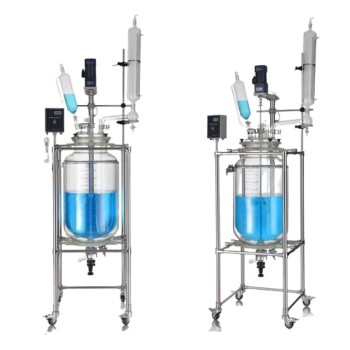Yes, temperature significantly affects distillation, as it is a critical factor in separating compounds based on their boiling points. By carefully controlling the temperature, specific compounds can be isolated, ensuring high yields and preserving the chemical integrity of the distillates. Additionally, vacuum conditions are often employed to lower the boiling points of compounds, enabling distillation at lower temperatures and minimizing thermal degradation. The process involves precise temperature adjustments, monitoring, and optimization to achieve efficient separation and prevent overshooting or altering the desired chemical composition.
Key Points Explained:

-
Role of Temperature in Distillation
- Temperature is the primary driver in distillation, as it determines the separation of compounds based on their boiling points.
- Each compound in a mixture, such as cannabis oil, has a unique boiling point, and precise temperature control allows for the selective extraction of specific compounds.
- For example, in fractional distillation, temperature gradients are used to separate compounds sequentially as they reach their respective boiling points.
-
Importance of Temperature Control
- Accurate temperature control ensures high yields of desired products and prevents the degradation of sensitive compounds.
- Overshooting the temperature can lead to the decomposition of compounds or the extraction of unwanted impurities.
- For instance, in the provided references, temperatures above 250°C are avoided to prevent altering the chemical makeup of the distillates.
-
Use of Vacuum Conditions
- Vacuum distillation is often employed to lower the boiling points of compounds, allowing distillation to occur at reduced temperatures.
- This is particularly useful for heat-sensitive materials, as it minimizes the risk of thermal degradation.
- Lower temperatures under vacuum conditions also help maintain the chemical integrity of the distillates, ensuring high-quality outputs.
-
Temperature Ranges and Optimization
- The distillation process involves specific temperature ranges and incremental adjustments to achieve optimal results.
- For example, the process starts at 50°C, with gradual increases to 140°C, and then to 220°C, avoiding temperatures above 250°C.
- Reactions in the distillation head typically begin around 180°-190°C, signaling the start of the "heads" fraction.
- Stirring speed is also adjusted (400-800 RPM) as the fluid level decreases to maintain efficiency.
-
Monitoring and Adjustments
- Continuous monitoring of temperature is essential to prevent overshooting and ensure the process remains within the desired range.
- If no reaction is observed, the temperature is increased incrementally (no more than 10 degrees at a time) to avoid sudden changes that could compromise the distillation process.
- This step-by-step approach ensures precision and minimizes the risk of errors.
-
Practical Implications for Equipment and Consumables Purchasers
- When purchasing distillation equipment, it is crucial to select systems with precise temperature control capabilities, such as digital thermostats or programmable heating mantles.
- Vacuum pumps and compatible distillation setups are essential for processes requiring lower temperatures.
- Consumables, such as high-quality thermocouples and temperature sensors, should be chosen to ensure accurate and reliable measurements throughout the distillation process.
By understanding the critical role of temperature in distillation, purchasers can make informed decisions about the equipment and consumables needed to achieve efficient, high-quality distillation processes.
Summary Table:
| Key Aspect | Description |
|---|---|
| Role of Temperature | Determines separation of compounds based on boiling points. |
| Temperature Control | Prevents degradation and ensures high yields of desired compounds. |
| Vacuum Conditions | Lowers boiling points, enabling distillation at reduced temperatures. |
| Temperature Ranges | Gradual adjustments from 50°C to 220°C, avoiding temperatures above 250°C. |
| Monitoring & Adjustments | Incremental temperature increases and continuous monitoring prevent overshooting. |
| Equipment Selection | Choose systems with precise temperature control and vacuum compatibility. |
Ready to optimize your distillation process? Contact us today for expert guidance and equipment solutions!













